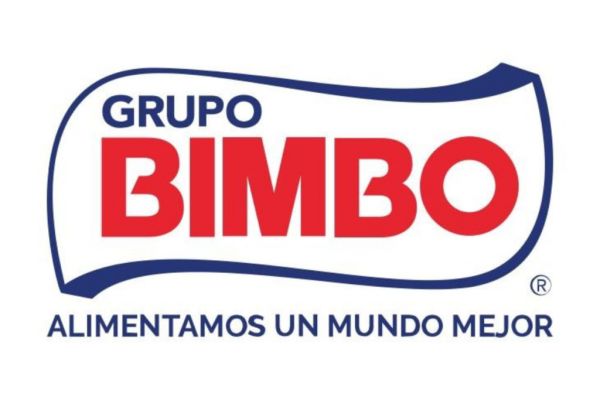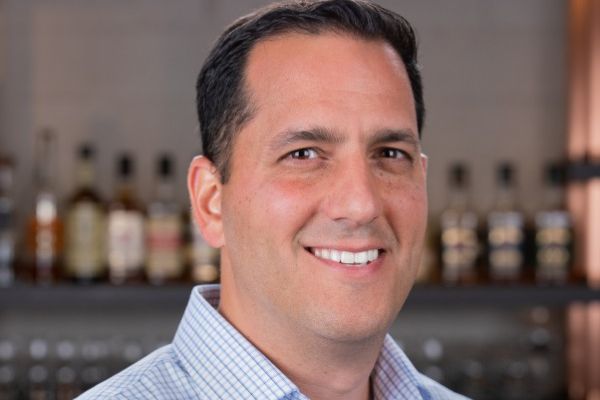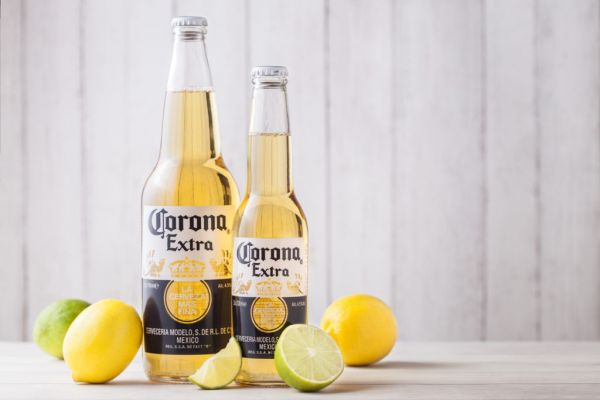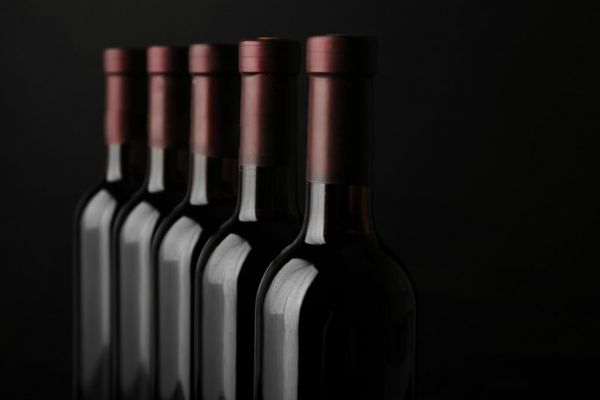ESM meets Tomas Grosch, director of development and strategy at Cofilling.
As the saying goes, ‘the devil is in the detail’, and in the drinks industry, we are very well aware of how true that is. Cofilling’s Hungary factory is a true leader in its field, where state-of-the-art technology enables the manufacturer to provide a consistently high-quality product to consumers. As a contract bottler, Cofilling can guarantee that both the specific recipe required remains exactly the same and that the entire process of bottling – from the bottled quantity through to pasteurisation and then the proper sealing of cans – is also subject to multiple controls. ESM asked Tomas Grosch, the company’s director of development and strategy, about how this has all been possible.
Where are you from, Tomas?My grandfather was German, my parents are Hungarians, I was born in Slovakia and I’m a citizen of New Zealand, which is where I came to Europe from. I realise it sounds like I was a globetrotter, but I?guess, these days, more and more of us say that we live in a global village. Energy drinks are now available almost everywhere in the world, and I personally know quite a number of markets – we deliver products to over 30 countries from our factory.
Both manufacturers and distributors are aware of what they must offer in order to acquire and keep consumers: a consistent high quality in terms of flavour, packaging and design. How can you, as bottlers, guarantee this?We used to hire contract bottlers to get our own brands bottled before this factory was built, so we are fully aware of the expectations that brand owners and distributors have in selecting contract bottlers. It is hardly a secret that distributors would like to keep their customers happy, increase the market penetration of their brands continuously and aggressively, and post increasingly high profits. However, the voyage from dreaming up marvellously unique recipes for own-brand beverages to delivering them to shops is far from plain sailing. In order for the quality of our products to comply with the effective statutory regulations, consumer expectations and food-safety standards, we thought we should introduce and operate the food-safety management system under the FSSC 22000:2011 standard. The adoption of this standard – which is the highest possible currently available – along with our Krones machinery, combine to guarantee high-quality consistency in terms of the ingredients and the bottling of the beverages to consumer and contract bottler alike.
Those who have already visited your factory say that it is almost deserted. Have my spies chosen a wrong time for the visit?Ha ha, no no. We’re not forcing our employees to take a holiday, nor is the factory ?empty because we’ve vacated it for the sake of some nice photos. The answer is very simple: because we use state-of-the art technologies, we only need a few people to operate the entire production line or control the process of manufacturing. Everything, from unpacking empty cans to handling pallets, is automated. Except for a guard at the gate, a receptionist and the lab staff, you will hardly bump into anyone in the whole factory area. You can translate our daily production of energy drinks into over 12 truckloads of goods. Also, if we arrange these pallets on top of each other, we could have a tower one mile in height, just to give you an idea of what this quantity means.
What makes your Hungary facility unique?One important aspect is harmony between ingredients and recipes, where – thanks to the highest possible degree of automation (i.e. the elimination of the human factor as an error) – the margin for error is almost eradicated. I’d even claim that there is no margin for even a three-bubble difference in a carbonated drink! After going through all the hardships required to finalise your specific recipe, the last thing you want is beverages delivered to shops with a change, even if a minor one, in the ingredients. Production on an older generation of bottling line involves human intervention, a source of error when it comes to mixing ingredients in a mixing tank. With the new generation, the process of manufacturing is automated in a pre-programmed manner, which reduces the chances of making errors to a miniscule level. Likewise, precision in bottling is equally important, right from the beginning. Empty cans undergo laser testing, whereby cans that are physically damaged are rejected. The testing equipment can detect even the smallest object that may have found its way into the can, or the tiniest of impurities, often not more than one millimetre in size.
Is it true that you use unmanned fork lifts? It’s quite surprising, isn’t it? Trays on pallets should be delivered to the storage area by means of an automated delivery system connected to the neighbouring logistics centre. Unmanned fork lifts, like robots, move about in the storage area and so do pallets. How they do it is thanks to the electronic guiding system hidden in the floor.
We sometimes hear stories of drinks becoming contaminated with the strangest of objects, or not having the correct recipe inside the can or bottle. Is this at all possible?In our case, such an event is almost impossible because our sophisticated machines could spot even the smallest of inconsistencies. Another issue is the quantity included in beverages – you don’t like getting less than what you’ve paid for. The imprecision that you may experience with older-generation machinery may account for a loss of as much as 15 per cent of the total quantity. With the new generation, the margin of error drops to below 2 per cent (the equivalent to one teaspoon per can). The underlying reason for this is that two checkpoints embedded in the process (one after the bottling and another after pasteurisation) guarantee the right quantity of beverage in each can.
Manufacturers are striving to stand up to a new challenge: to avoid the use of preservatives, they pasteurise their beverages in order to preserve their quality over the longer term. How do you go about this?Although it is indeed a fundamental requirement that manufacturers should pasteurise their beverages in order to guarantee a satisfactorily long shelf life, often a different solution is used due to either the lack of appropriate machinery or the high operating costs of pasteurisers. In our factory, all filled-up and sealed cans move along in a pasteurising tunnel, where they have to stay for a predetermined length of time at a predetermined temperature in order for them to stay pasteurised and germ-free during the entire term of their shelf life. In the case of older-generation machines, the fact that control by pasteurisers is difficult to parameterise may lead to some potential worries. In energy-drink manufacturing, the process of pasteurising represents the third-highest cost component, therefore, many try to cut down on this cost by reducing the energy consumed, by accelerating the process. If there is no reliable control, serious problems may arise. In the case of modern, fully automated bottling lines, all control and regulatory tasks are performed by computers, but even still, control cannot be waived. Modern machines are also equipped with data collecting and recording devices (we call them submarines), which start operating every 30 minutes in order to check if finished goods stayed in the machine for the prescribed length of time. So some cans are furnished with a microchip before the bottling process. Once pasteurising is over, staff in the lab can read the data on the chip to check if the product stayed in the tunnel for the prescribed length of time.
One of the main concerns of drinks manufacturers when sourcing a packager: damaged and leaking cans. How do you combat this?It is indeed a major issue. Leaking can be detrimental to both stock and premises, as the sanitary suitability of the place at issue may be called into question. I’d like to reassure all who distribute the drinks that we manufacture that they won’t have to spend much on cleaning up – as sure as hell, they won’t have to use their mops left, right and centre! There are two underlying reasons for leaking cans: one is inadequate sealing, the other is some mechanical defects caused by some impact during storage or transportation. In our factory, the machine that seals full cans uses pressure at a speed of approximately 5-13 instances of sealing per second.Imperfect sealing leads to a higher ratio of defective products than if we used modern machinery. The latest generation of bottling lines uses the highest-quality sealing devices, and sealing is checked automatically. In our case, this process also includes a lab test. During the test we use sophisticated equipment to check if the can has been properly sealed. Mechanical defects and damage mainly occur when an obsolete production line is used. The conveyor belt that carries the cans during manufacturing may scratch their edges while carrying them. The bollards of such conveyor belts may cause similar damage to cans. In our factory, although cans travel about 400 metres during the bottling process, such damage can be ruled out.
Given the supply-chain worries enveloping Europe of late, it is clear that facilities such as Cofilling’s in Hungary will become more and more in demand. Greater control throughout the whole production process, more extensive checks along the line and higher-spec machinery is the continuous pursuit of anyone in the FMCG industry. In Hungary, it’s no different.For more information, please visit: http://www.cofilling.com/














